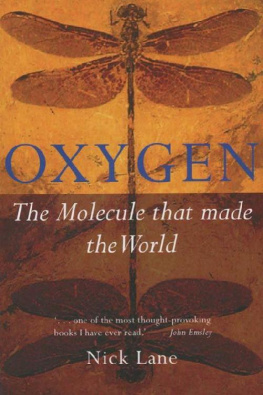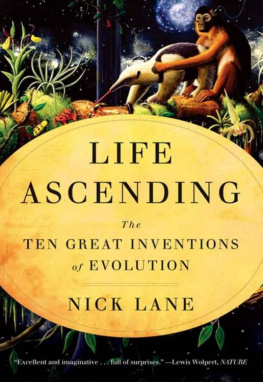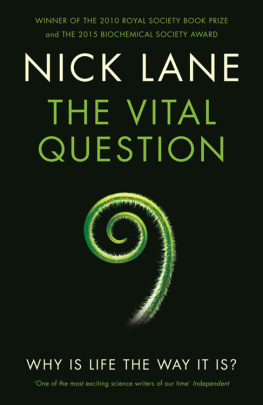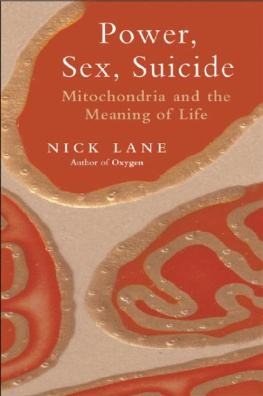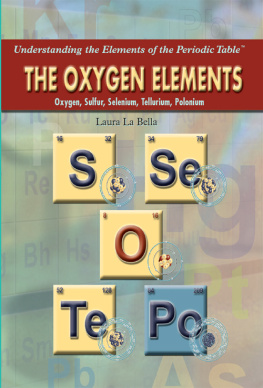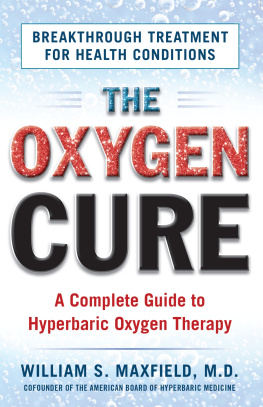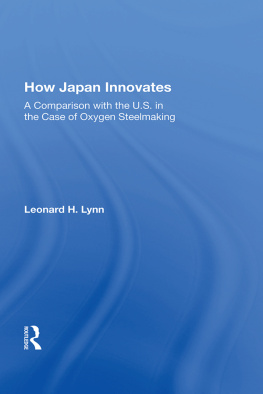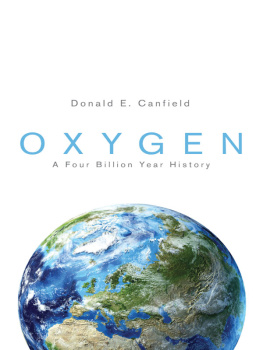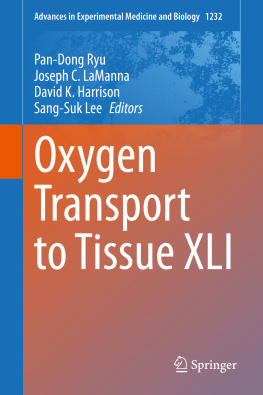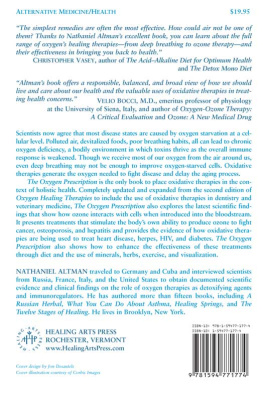
Oxygen is the story of life on Earth. Nick Lanes chapters are dispatches from the frontiers of research into Earth and life history, but they contain nothing that will lose the patient reader and much that will reward.
Tim Radford , The Guardian
A searching analysis of the role played by free radicals in senescence crammed with interesting information, supported by an eclectic choice of references to the recent literature a worthy effort with a clearly argued message, full of informative and entertaining details.
Christian de Duve, American Scientist
Broad-ranging and densely argued Lanes learning and historical scope enable vivid descriptions of the role oxygen has played in determining the course of evolution [an] ambitious and detailed work.
Michael Peel , Times Literary Supplement
A breathtaking, broad vision of the role of a single gas in our life, from the origin of organisms through the emergence of creatures, and to their deaths packed full of interesting life- and death-stories A wonderful read.
Peter Atkins
Lane marshals an impressive array of evidencefrom the mechanics of insect flight to the levels of carbon 13 in rocksto suggest that the ancient atmosphere may indeed have been oxygen-rich after all. But an explanation for the giant forests and creatures of the Carboniferous age is only a single part of this ambitious narrative.
Oxygen is a piece of radical scientific polemic, nothing less than a total rethink of how life evolved between about 3.5 billion and 543 million years ago, and how that relates to the diseases we suffer from today. This is scientific writing at its best.
Jerome Burne , Financial Times
Lanes book is an extraordinary orchestration of disparate scientific disciplines, connecting the origins of life on earth with disease, age and death in human beings. In his finale, he tells us many things we ought to know about antioxidants and diet.
John Cornwell, Sunday Times
Enjoyable and informative Oxygen presents an entertaining and cogent account of how oxidative stress fits in to our rapidly expanding knowledge about ageing
a nicely crafted account of an important elements place in our lives deserves to be widely read.
Tom Kirkwood, Nature
Nick Lane has written a meticulously detailed history of oxygen on our planet A unifying thread of Lanes narrative, fascinating in its irony, binds it all together: oxygen, an essential element of life, is also an agent of death.
Laurence A. Marschall, Natural History Magazine
informative and entertaining
Science
In this excellent book, Lane explains how oxygen was the cornerstone of the evolutionary explosion and reviews the theory that oxygen is implicated in ageing. He presents his theories with clarity, making them accessible to anyone with basic scientific knowledge. This is both a scholarly and readable introduction to an important topic.
The Good Book Guide
Enthralling An excellent book. It held me spellbound for a 7 hour plane flight. I recommend it unreservedly.
Barry Halliwell, Free Radical Research
Nick Lane breaks out of the mould with a provocative discussion of oxygens role in evolutionary biology, age-related diseases, and the life and death of human beings... The questions he addresses are of immeasurable practical concern...
Lanes exhaustive research is reflected in his tight arguments and crisp prose.
Dan Falk, The Ottawa Citizen
Popular science writing at its very best clear yet challenging, speculative yet rigorous. The book is a tour de force which orchestrates a seamless story out of both venerable ideas and very recent discoveries in several disparate fields.
Bernard Dixon
Oxygens history has never been told as well as Nick Lane tells it here.
David Payne, Focus Magazine
OXYGEN
Nick Lane studied biochemistry at Imperial College, University of London.
His doctoral research, at the Royal Free Hospital, was on oxygen free-radicals and metabolic function in organ transplants. Dr Lane is an honorary senior research fellow at University College London and formerly strategic director at Adelphi Medi Cine, a medical multimedia company based in London, where he was responsible for developing interactive approaches to medical education. Articles by Nick Lane have been published in numerous international journals, including Scientific American, New Scientist, The Lancet and the British Medical Journal. He lives in London.
Read more about Nick Lane and his writing at
http://pages.britishlibrary.net/nick.lane
This page intentionally left blank
OXYGEN
The molecule that made the world
Nick Lane
Great Clarendon Street, Oxford OX2 6DP
Oxford University Press is a department of the University of Oxford.
It furthers the Universitys objective of excellence in research, scholarship, and education by publishing worldwide in
Oxford New York
Auckland Bangkok Buenos Aires Cape Town Chennai
Dar es Salaam Delhi Hong Kong Istanbul Karachi Kolkata
Kuala Lumpur Madrid Melbourne Mexico City Mumbai Nairobi So Paulo Shanghai Taipei Tokyo Toronto
Oxford is a registered trade mark of Oxford University Press in the UK and in certain other countries
Published in the United States
by Oxford University Press Inc., New York
Nick Lane, 2002
The moral rights of the author have been asserted
Database right Oxford University Press (maker)
First published 2002
First issued in paperback 2003
All rights reserved. No part of this publication may be reproduced, stored in a retrieval system, or transmitted, in any form or by any means, without the prior permission in writing of Oxford University Press, or as expressly permitted by law, or under terms agreed with the appropriate reprographics rights organization. Enquiries concerning reproduction outside the scope of the above should be sent to the Rights Department, Oxford University Press, at the address above
You must not circulate this book in any other binding or cover and you must impose this same condition on any acquirer British Library Cataloguing in Publication Data
Data available
Library of Congress Cataloguing in Publication Data
ISBN 0-19-860783-0
10 9 8 7 6 5 4 3 2 1
Printed in Great Britain by
Clays Ltd, St Ives plc
Contents
For Ana
Acknowledgements
I am especially grateful to three people, without whom this book may never have passed from concept to reality. First, to Dr John Emsley, whose beguiling science writing and generous, enquiring mind have been an inspiration to many aspiring chemists and writers. I am grateful to John for introducing me to Oxford University Press, and for many invigorating discussions about science, society and language. Second, to Dr Michael Rodgers of OUP, whose sharp eye and masterly editorial skills have cultivated a generation of science writers. I am grateful to him for seeing potential in my first attempts to put together a story for this book, for his timely and gentle nudges towards a clear and unembellished writing style, and for his encouragement and support throughout. Finally, I thank my wife, Dr Ana Hidalgo, who has lived and breathed this book with me.
With her wide-ranging knowledge and sure perspective, she has pointed out my foolish errors with a smile, and reinforced my conviction in the central ideas. I am chastened by her intolerance for opacity, which at times was hard to bear, but without which I fear this book would have made no sense to anyone but the author.
Next page
